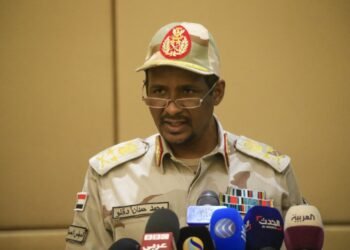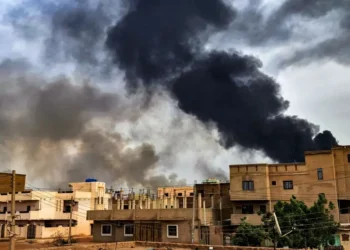Top politicians in Libya have asked the Attorney General, Al-Siddiq Al-Sour, to launch an urgent inquiry into the flood which have killed tens of thousands of people and rendered many missing.
They called for investigations into allegations that local officials imposed a curfew on the night of the flood and caused the collapse of two badly maintained dams.
A lot of people have expressed their fury about whether warnings about the state of the two dams were ignored as well as the failure to find new contractors to maintain the dam after Libya’s 2011 civil war.
The call for the inquiry came separately from the leaders in the two sides of the country; Libya’s presidential council Chair, Mohamed al-Menfi, in the east, and the interim Prime Minister of the Tripoli-based government, Abdel Hamid Dabaiba.
Libya has been split by parallel administrations for years; an internationally recognised Government of National Unity (GNU) is based in Tripoli in the west, while a parallel administration operates in the east, including Derna.
However, the Attorney General is one of the few officials left whose influence supposedly runs across the country.
Menfi said that he wanted the inquiry “to hold accountable everyone who made a mistake or neglected by abstaining or taking actions that resulted in the collapse of the city’s dams.”
The core of the two aggregate dams which were destroyed by the flood caused by Storm Daniel, is made of compacted clay, and the sides are made of stones and rocks.
A Turkish firm had been contracted to work on the dams in 2007, but left the county in 2011 when fighting broke out, and had not returned.
According to information that was shared with Abdel Hamid Dabaiba at a meeting with the ministry of water resources, part of a sum of 39m dinars set aside for the dam’s maintenance in 2003 was later taken back from the ministry, most of it unspent.
After the company left the country, its machinery was stolen and the building site went into disuse.
Salah Aboulgasem, the Deputy Director of partner development at Islamic Relief, opined that the current situation at Derna “gives you an indication of the limited infrastructure in Libya.”
“The storm hit Greece as well as Libya. But in Greece, there were six deaths and in Libya 6,000,” he added.
Derna Appeals For Body Bags

One of the chief shortages in the city of Derna, apart from drinking water, are body bags required to convey dead bodies in order to prevent disease spreading.
As such, rescue workers in Derna have appealed for more body bags.
Lutfi al-Misrati, a search team Director, told a news agency, “We need bags for the bodies.”
Also, the Mayor of Derna, Abdulmenam al-Ghaithi, said, “We actually need teams specialised in recovering bodies.”
He added, “I fear that the city will be infected with an epidemic due to the large number of bodies under the rubble and in the water.”
In an interview, Ahmed al-Mandhari, Regional Director of the World Health Organization for the Eastern Mediterranean, warned that the risk of water-borne and other diseases is also quite high.
Meanwhile, Health Minister, Othman Abduljaleel disclosed that more than 3,000 bodies were buried by Thursday, September 14, 2023, morning, while another 2,000 were still being processed.
He said most of the dead were buried in mass graves outside Derna, while others were transferred to nearby towns and cities.
Such was the need to bury the bodies to avoid the spread of disease that hundreds were being buried collectively in one grave.
Derna residents have been pleading for a new field hospital as the two existing hospitals in the town have become makeshift morgues.
Abduljaleel iterated that rescue teams were still searching wrecked buildings in the city center, and divers were combing seawater off Derna.
READ ALSO: Libya Floods: More Than 2,000 Bodies Found In Derna





















